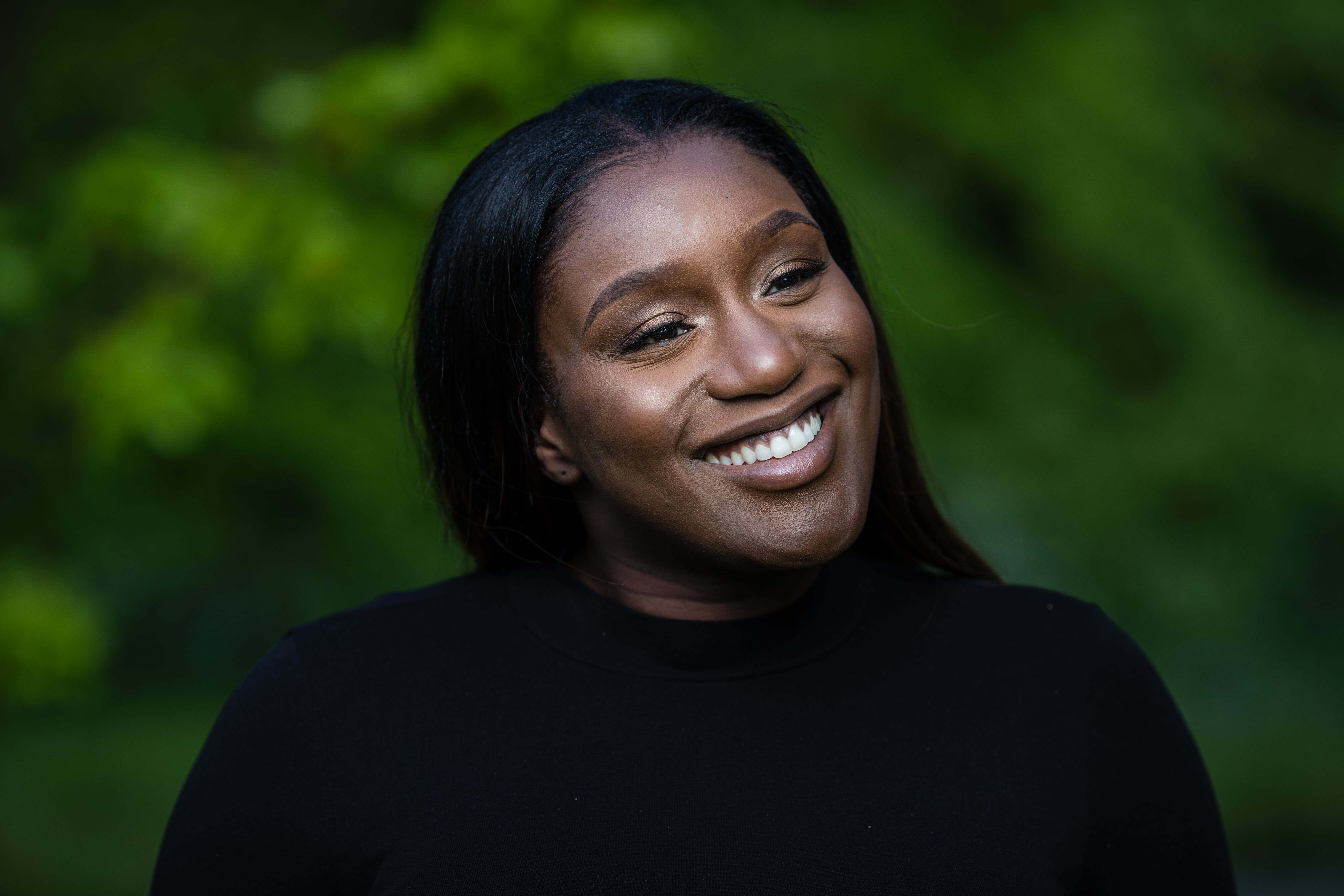Gold DofE award holder tells memorial service of impact of Philip’s ‘vision’
Doyin Sonibare, 28, from east London, admitted she was not ‘completely sold’ on the idea of starting the Duke of Edinburgh’s Award at first.

A Duke of Edinburgh Gold Award holder who delivered a special tribute at Philip’s memorial service has hailed the duke’s “vision”, telling how the award scheme gave her opportunities which changed her life.
Doyin Sonibare, 28, addressed the royal family, Prime Minister Boris Johnson and charity workers as they gathered in Westminster Abbey in honour of the Queen’s consort.
Ms Sonibare credited Philip’s initiative, which he set up in 1956, with helping her secure her first job as a project co-ordinator at IBM at 18 without any professional experience.
She said the youth challenge had remained a prominent part of her life, and the east Londoner, who had never been camping before, told how she had to overcome a fear of climbing hills to pursue her DofE expedition.
“I wasn’t completely sold on the idea at first,” she admitted.
“I was happy I could learn new skills and build upon my interests such as learning how to drive and playing netball.
“But I was worried about the expedition, I grew up in east London and had never been camping before.
“I also had a fear of climbing steep hills – I kept thinking I was going to trip up, roll down the mountain and ‘it’s lights out for Doyin’. Fortunately for me, that didn’t happen.”
She added: “I remember thinking to myself, if I could complete this expedition, I can do anything.”
Ms Sonibare said she used the experiences and teamwork skills from her expedition to Wales and while fundraising for a volunteering trip to The Gambia to land her first job, including using them on her CV and in her answers during the interview.
“It all linked back to the award which actually links back to the golden word – opportunity,” she said.
“On reflection, I never thought I could do half of the things I have done in the last decade, yet I’ve been able to do so because of the opportunities presented to me.
“In 1956, when the Duke of Edinburgh created the Award, he had a vision to create a programme which supported the development of young people all over the world.
“Today, you’ve learnt how his legacy has impacted me and how it will continue to impact future generations to come.”
Ms Sonibare, who is now an account executive and studying for a PhD in sickle cell research and health inequalities, stressed the need to support the young in the wake of the pandemic.
“The world has been through so much turmoil and in these times, it is so important to show our support to young people, to encourage them with opportunities and empower them to reach their full potential,” she said.
Ms Sonibare went on set up a work experience programme for young people from disadvantaged backgrounds, and is the team captain for the DofE’s Do it 4 Youth campaign.
Nine recent Gold Award holders – dressed in bright purple DofE jackets – lined the Abbey steps as guests arrived – an element of Philip’s original funeral plan that was unable to go ahead at the time because of Covid restrictions.
The stepliners were:
– Lira Lewis, 21, from Leeds, West Yorkshire, who has dyslexia and dyspraxia, and faced bullying at school, saw her confidence grow after taking on the scheme’s challenges.
– Felix Daglish, 20, from Wandsworth, south London, who is a 2021/22 DofE Youth Ambassador and passionate about sharing the message that young people with a physical impairment or disability can benefit enormously from taking part.
– Meryem James, 22, from Kilburn, north London, who became a mother in 2017, returned to studying and took up the chance to do her Gold DofE.
– George Fisher, 21, from Sidcup, south-east London, who volunteered with children and adults with disabilities for his DofE Volunteering section, and credits the scheme with helping him overcome his struggles with anger as a teenager.
– Joel Chilaka, 21, from London – a junior doctor and who says the DofE gave him personal development and growth opportunities.
– Josie Harrison, 18, from Doncaster, South Yorkshire, who gained confidence and independence, and has been involved in creating the DofE’s Youth Manifesto.
– Jack Bayley, 21, from Manchester, who struggled with his mental health in the past but said the award scheme helped him get his life back on track and has inspired him to work towards becoming a PE teacher.
– Lucy Aur, 22, from Llanelli, south Wales, who struggled with anxiety growing up and was a carer for her grandma, said DofE helped her mental health and impacted her life more than she ever imagined.
– Rajan Modha, 27, from Harrow, London, who works in business development and has ambitions to set up a charity in the future, said the scheme taught him resilience.
Following Philip’s death in April last year, the DofE launched the Living Legacy Fund in his memory to support its aim to reach a million more young people by 2026, with projects to reach marginalised young people and expanding the DofE in prisons and young offender institutions.
Aimed at both able-bodied and disabled youngsters, DofE has become one of the best known self-development and adventure schemes for 14 to 24-year-olds.
Since it was set up in 1956, nearly seven million have joined the scheme in the UK with over three million achieving awards.
The duke was inspired to start the programme by his eccentric headmaster, Dr Kurt Hahn, and his much-loved school days at Gordonstoun in north-east Scotland.
Bookmark popover
Removed from bookmarks